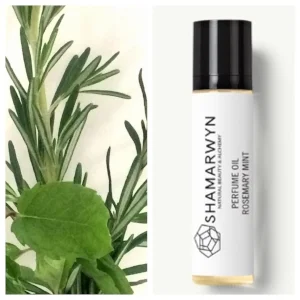10 Important Facts You Should Know About Natural vs Synthetic Fragrances
Don’t get me wrong, I love my Chanel No 5, Opium and CK perfumes as much as the next woman. However, sometimes fragrances such as these are just inappropriate. They are best left to intimate occasions. More often than not, people are asked to leave off the fragrances at the office, when flying and many other times when you are to be around groups of people where there may be others with allergies or where these types of perfumes can be overwhelming.
But fragrances can be such a great pick-me-up during the day. They can make you feel more attractive and feminine. Who doesn’t like that?
Natural fragrances are better suited for daily wear, less intrusive and non-lingering after you leave the room. Just a healthy aromatherapy experience to make your day more pleasant without making those around you suffer. Just a hint of flowers or plant fragrance without the chemicals to make the scent stronger and last all day.
Perfumery has been around for millennia—the Ancient Egyptians were already extractingnatural essences to use on their bodies in 2000 BC—but it grew into an industry to bereckoned with during the reigns of Kings Louis XIV and XV in 17th-18th century France.
Fragrances at this time were all extracted from natural sources. This was true for florals and animal scents alike—musk, for example, was the direct secretion of the sexual glands of the musk deer which had to be killed for the purpose of the scented exercise.
Perfume is complex. Commonly, a perfume formula can include 15-50 different fragrant materials to make up an aroma, plus the base ingredient and any other additives that might be included.
For natural perfume, the ingredient list is simple: a combination of natural extracts for scent, natural alcohol or plant oil, water, possibly a natural antioxidant to maintain shelf life, and occasionally glycerin.
When it comes to synthetic fragrances the list of ingredients is vastly different.
1. Synthetic fragrance: Synthetic fragrances can either be original aromas that don’t exist in nature or may be created to be nature-identical (using the same chemical formula as the natural extract). Synthetic aromas are known to have many side effects on health such as common allergies like asthma, hives, dermatitis and wheezing, to hormone disruption, metabolic disease and thyroid problems, birth defects and the potential for triggering cancer cells to develop.
2. The original musk scents were derived from musk deer, civet or sperm whales (ambergris).Nowadays, musks are entirely synthetic and are made using aroma-chemicals. These are rarely listed on the perfume labels, but are among the most toxic of the synthetic fragrance extracts. Side effects can include endocrine disruption, organ system toxicity, reproductive toxicity and generally allergic reactions. Synthetic musk accumulates in human fat tissue and breast milk so can readily be passed on to breastfeeding babies.
3. Phthalates: Phthalates perform a few functions in synthetic perfumes. They can be included as part of a preservative system, and can be used to extend the fragrance so it lasts longer on the skin. Phthalates have been implicated in a number of wide-ranging health issues including certain cancers, asthma, breast cancer, obesity, male fertility issues and birth defects.
4. Parabens: In order to maintain a very long shelf life, synthetic preservatives are often included in commercial perfumes. The most common of these are parabens which effectively help stop bacteria and other contaminants from growing in your bottle of scent. It sounds like a good thing, but the impact of parabens on the human body is now well-documented. Parabens interfere with hormone function, especially that of estrogen, and may promote breast cancer development, and have an impact on sperm development in males. In addition, parabens are a common skin sensitizer and may cause other allergic reactions.
5. Learn how to read ingredient labels. As with food labelling, if the ingredient panel includes: lots of unfamiliar words, codes and numbers, it’s highly likely the perfume is full of chemical ingredients. Perfumes that contain only natural ingredients will use words like ‘ethanol’ or ‘alcohol’ usually with a reference to the plant the alcohol comes from (for example, from corn or sugar cane), and refer to essential oils, natural extracts, plant fragrance, or parfum (labelling laws in some countries require the word ‘parfum’ even if the fragrance is 100% natural)
6. By knowing how to choose a truly natural perfume, you will be avoiding the potentially toxic effects of synthetic fragrance, such as headache, asthma, skin irritation and even hormone-related diseases. And you will be treating your senses to a fragrance that is more complex, and nuanced that anything created in a lab.
7. Because natural and organic perfumes are produced on a much smaller scale than mainstream fragrances, their processes are far more meticulous. In addition, the price of natural ingredients are exponentially higher than synthetics, commonly being anywhere from double to twenty times the price of a synthetic ingredient of a similar odor profile. The finished product is one that has a depth, individuality and complexity that cannot be replicated by chemical ingredients.
8. Natural & organic fragrances: The use of essential oils in natural products has many benefits for the earth and for your body. These oils are derived from an array of botanical sources - everything from leaves, flowers, seeds, bark, fruit, sap, roots, bark – extracted mainly using steam distillation or cold pressing.
9. These essential oils have many known health benefits when absorbed or inhaled - commonly known as aromatherapy. Many have potent soothing or grounding effects, such as sandalwood or chamomile; others are known to elevate the mood, such as citrus oils or rose, and some are associated with focus and clarity, such as basil, lemon and cinnamon.
The use of these essential oils and natural extracts in organic perfumery also supports organic farming and ethical production of material, and does not practice animal testing.
10. Organic and natural perfumes are simply a better choice for your health and for the environment. They enable you to enjoy the beauty of an enticing scent without suffering the negative effects of perfumes made from synthetic ingredients.
Shamarwyn Perfume Oils are thoughtfully crafted, high-grade and wild-crafted essential oils and natural blends that connect us to plant wisdom. Throughout time, cultures have used aromatic oils for sacred ritual, aromatherapy, purification, contemplation, perfume & medicine. We look to these plants for guidance, healing & inspiration.
"Fragrance is the sharpest trigger of the memory, a transport into forgotten worlds."
~Anne Rice~








